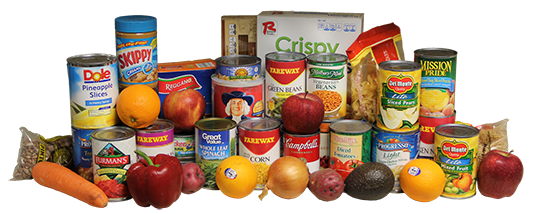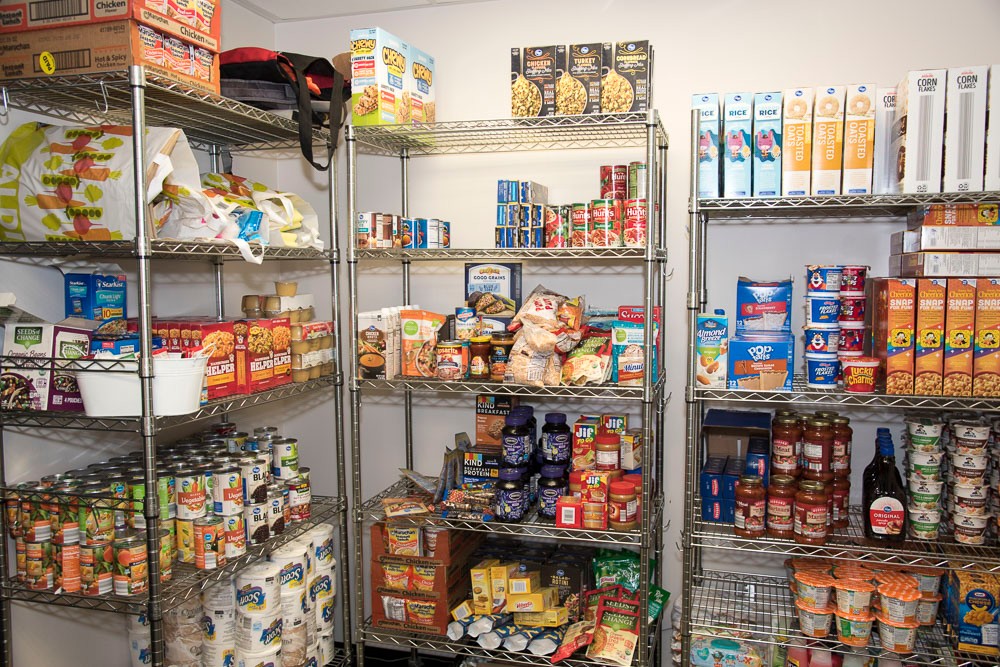Food Pantry Lockhart: Dealing With Hunger One Dish each time
Food Pantry Lockhart: Dealing With Hunger One Dish each time
Blog Article
Why Supporting Your Local Food Cupboard Is Essential for Assisting Those in Requirement
The importance of supporting neighborhood food cupboards can not be overstated, particularly in the context of food insecurity, which impacts a startling number of individuals and families within our areas. As we discover the multifaceted function of food kitchens, it ends up being apparent that their influence prolongs far beyond just dispersing food.
Understanding Food Instability
Food insecurity influences about 10.5% of households in the USA, illustrating a substantial public health and wellness issue that goes beyond mere cravings. It refers to the absence of constant accessibility to adequate food for an active, healthy and balanced life. This condition can result in a variety of adverse end results, consisting of inadequate wellness, increased healthcare prices, and decreased scholastic performance amongst kids.
The root causes of food insecurity are multifaceted, usually originating from economic aspects such as hardship, joblessness, and underemployment. Geographical location can additionally play an essential role, with food deserts-- locations with limited access to cost effective and nourishing food-- aggravating the issue - Food Pantry Lockhart. In addition, systemic variables, including racial and social injustices, add to the disproportionate influence of food instability on marginalized neighborhoods
Resolving food instability is not just concerning increasing food supply; it needs a comprehensive method that includes financial stability, education and learning, and neighborhood support. Food instability not just affects specific well-being but additionally has wider ramifications for social health and performance. Understanding its intricacy is vital for developing reliable interventions and promoting long-term solutions that make certain all people have trustworthy access to nourishing food.
The Function of Food Pantries
Regional food kitchens serve as critical lifelines for people and households facing food instability. They offer important food items to those that may battle to pay for sufficient nourishment as a result of financial challenge, unemployment, or unexpected conditions. By dispersing food at no cost, these organizations aid minimize hunger and avoid the unfavorable health effects related to insufficient diets.
Food cupboards frequently partner with neighborhood ranches, food store, and neighborhood organizations to resource a selection of healthy food products, consisting of fresh produce, dairy, and healthy proteins. This cooperation makes sure that kitchen clients get not just food but also healthier alternatives that add to total health.
Furthermore, food kitchens act as neighborhood hubs, promoting links amongst residents and giving a sense of self-respect to those in need. Numerous pantries use added resources, such as nourishment education and learning and references to social solutions, helping clients navigate their difficulties much more effectively.
Basically, food kitchens play a multifaceted role in combating food insecurity. They not just address prompt hunger yet additionally empower people and households to improve their scenarios, thereby promoting neighborhood durability and communication.

Benefits of Sustaining Food Pantries

Supporting food kitchens not only nourishes those in demand however likewise enhances the textile of the neighborhood. By providing important food resources, food kitchens minimize appetite and lower food insecurity, which is important for the health and well-being of households and individuals. Access to healthy food adds to enhanced physical health and wellness, far better educational outcomes for children, and improved psychological health, thereby promoting an extra efficient and engaged community.
Moreover, supporting food cupboards promotes social communication. These organizations act as hubs for neighborhood interaction, bringing with each other volunteers, contributors, and recipients in a shared objective to deal with appetite. This partnership can damage down obstacles, foster understanding, and build partnerships among varied area participants.
In addition, donations to food kitchens, whether in the form of food, funds, or time, stimulate the regional economic climate. Several food cupboards focus on sourcing from neighborhood manufacturers, thus supporting local farming and businesses. This creates a cycle of assistance that benefits not only those in need but the neighborhood all at once.
Exactly How to Get Involved
Interaction with food kitchens can take lots of types, enabling groups and individuals to make a purposeful influence in their neighborhoods. One of the most straight methods to get included is by contributing food products. Non-perishable things such as canned products, pasta, and rice are constantly sought after. Monetary contributions visit this site right here are likewise invaluable, as they allow food cupboards to acquire fresh produce and vital materials.
Volunteering your time is another impactful means to sustain local food cupboards (Food Pantry Lockhart). In enhancement, consider organizing food drives within your school, workplace, or community team to raise understanding and collect sources.
Collaborations with local companies can further improve support check here for food kitchens. Companies can hold contribution occasions or contribute a section of their sales to the cupboard. Spreading out the word through social media and personal networks assists to boost exposure and motivate others to contribute. By taking these steps, individuals and teams can dramatically bolster the initiatives of regional food kitchens and help those in requirement.
Neighborhood Effect and Connection
Recognizing the profound impact of food cupboards on community health is crucial for promoting a spirit of link and partnership. Food pantries offer not just as important sources for those encountering food insecurity however additionally as hubs for community interaction. They bring with each other diverse teams-- benefactors, volunteers, and clients-- developing an environment where individuals can connect and support one an additional.
The impact of food kitchens expands past simple provision of food; they work as a driver for social communication. By joining cupboard campaigns, community members can create relationships that go beyond socioeconomic obstacles. This network of assistance helps to take apart the stigma usually connected with food assistance, promoting an environment of approval and understanding.
Moreover, food pantries frequently work together with regional companies, colleges, and organizations, intensifying their reach and efficiency. These collaborations enhance community resilience and urge a collective response to food insecurity. As people unite in Discover More their efforts to sustain neighborhood food cupboards, they grow a feeling of shared function and obligation, strengthening the idea that everyone has a function to play in making sure that nobody goes hungry. Eventually, sustaining food cupboards enhances the fabric of the community all at once.
Conclusion
Sustaining regional food pantries is essential in combating food insecurity and boosting the well-being of susceptible populaces. Involvement with food pantries promotes area links, advertising social cohesion and equity.

Report this page